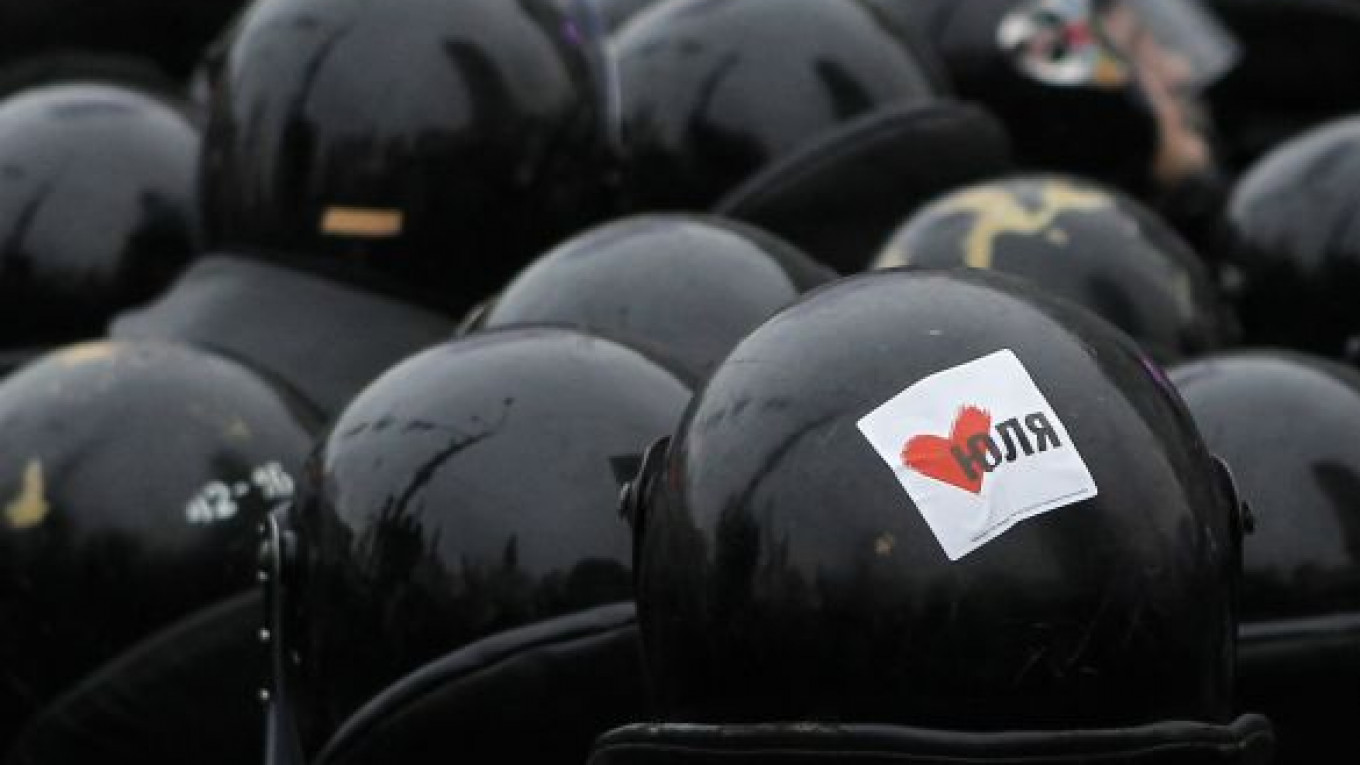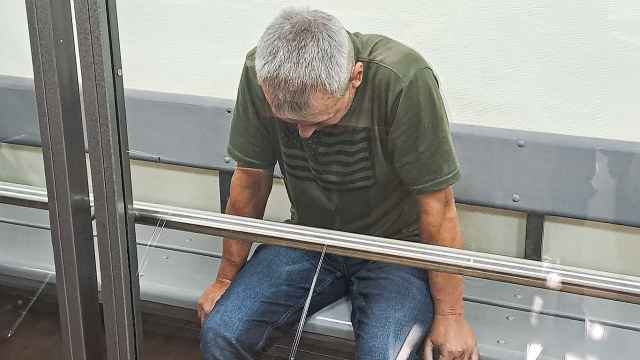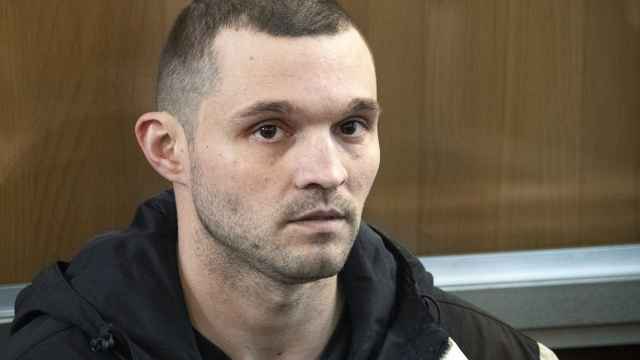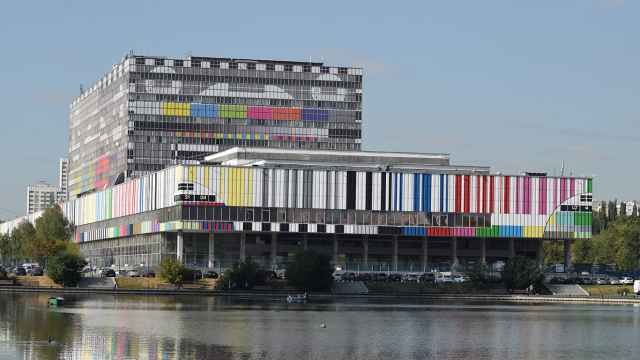KIEV — A European Union envoy, on a mission to Ukraine to save a Dec. 19 summit from failure, said Tuesday that he had voiced serious concern again to President Viktor Yanukovych over the jailing of opposition leader Yulia Tymoshenko.
Tymoshenko, a former prime minister, was jailed for seven years in October on abuse-of-office charges after a trial that the EU says was politically motivated.
She says it is a “lynching” by Yanukovych, an old political foe who only narrowly beat her in a runoff for the presidency in February 2010 after a bitter contest.
The Tymoshenko affair has thrown into jeopardy next week’s summit in Kiev, which was meant to lay the ground for a new strategic relationship between the nation and the 27-member body.
In Brussels, Ukraine’s envoy to the EU said he did not now expect the bloc to initial key agreements at next week’s summit, as had been originally envisaged.
EU commissioner Stefan Fuele, the bloc’s point man on Ukraine, held more than three hours of talks with Yanukovych on Monday night and then visited Tymoshenko for a half-hour at the Kiev prison where she is being held.
“I underlined that the EU is concerned about lack of progress on a number of critical reforms in Ukraine, including those in the constitutional and judicial spheres, and we have had substantial discussions on these,” Fuele said of his talks with Yanukovych and others.
“I also reiterated our serious concern over recent cases of selective justice in Ukraine, including the cases of Yulia Tymoshenko and others,” Fuele said in a personal statement.
With Tymoshenko, he had discussed her health and developments in her case.
“I informed her about the EU’s concerns regarding this process and assured her that we would continue to follow closely her appeal and would insist upon the need for her to benefit from of all her rights to defend herself in a fair process,” Fuele said.
The envoy gave no indication that there had been any change of heart by Yanukovych or any sign that he would intervene to bring about Tymoshenko’s release — indeed the authorities have been piling up charges against her rather than the reverse.
Last Friday, authorities convened a special court in her prison cell and formally “rearrested” her on a new criminal charge of tax evasion, prompting her lawyer to say the authorities clearly intended to keep her locked up indefinitely.
The abuse-of-office charge, for which she was sentenced in October, relates to brokering a gas deal with Russia in 2009 when she was prime minister.
Political insiders in Kiev say the prosecution of Tymoshenko, a charismatic populist whose fiery rhetoric brought tens of thousands out on to the streets in the 2004 Orange Revolution protests, is personally driven by Yanukovych.
Yanukovych was ultimately denied the presidency by the Orange Revolution, and insiders say he has not forgiven Tymoshenko for that or for her biting personal attacks during 2010 presidential campaign.
About 1,000 of her supporters — chanting “Yulia, freedom! Yanukovych to prison!” — gathered outside the Ukrainian appeals court on Tuesday when her appeal against October’s verdict opened.
Tymoshenko’s defense lawyer Serhiy Vlasenko told the court that her health prevented her being present at the hearing. Her family say the 51-year-old is suffering from back trouble.
Vlasenko told journalists outside the court: “All Yanukovych has to do is give the order to change the court’s decision, and it will be done. The decision [to release her] does not lie with the appeals court, and you know this.”
The EU and Yanukovych’s government had been expected to set course on a new strategic relationship at next week’s summit that involves agreements on political association and creation of a free-trade zone.
But Ukraine’s ambassador to the EU, Kostiantyn Yelisieiev, said it appeared unlikely these documents would now be initialled.
“For our side there is full-fledged political will to initial at the summit,” he told reporters in Brussels. “Unfortunately, you need two to tango and as I understand, there is no political will on the EU side to initial at the summit because of the position of some member states.”
EU diplomats have said that if the agreements are not initialed at the summit, a joint statement simply acknowledging that talks have been formally concluded may be issued — but some say this will represent a diplomatic failure.
A Message from The Moscow Times:
Dear readers,
We are facing unprecedented challenges. Russia's Prosecutor General's Office has designated The Moscow Times as an "undesirable" organization, criminalizing our work and putting our staff at risk of prosecution. This follows our earlier unjust labeling as a "foreign agent."
These actions are direct attempts to silence independent journalism in Russia. The authorities claim our work "discredits the decisions of the Russian leadership." We see things differently: we strive to provide accurate, unbiased reporting on Russia.
We, the journalists of The Moscow Times, refuse to be silenced. But to continue our work, we need your help.
Your support, no matter how small, makes a world of difference. If you can, please support us monthly starting from just $2. It's quick to set up, and every contribution makes a significant impact.
By supporting The Moscow Times, you're defending open, independent journalism in the face of repression. Thank you for standing with us.
Remind me later.






